Pilot Report: Long Live Air Malta!
April 30, 2015
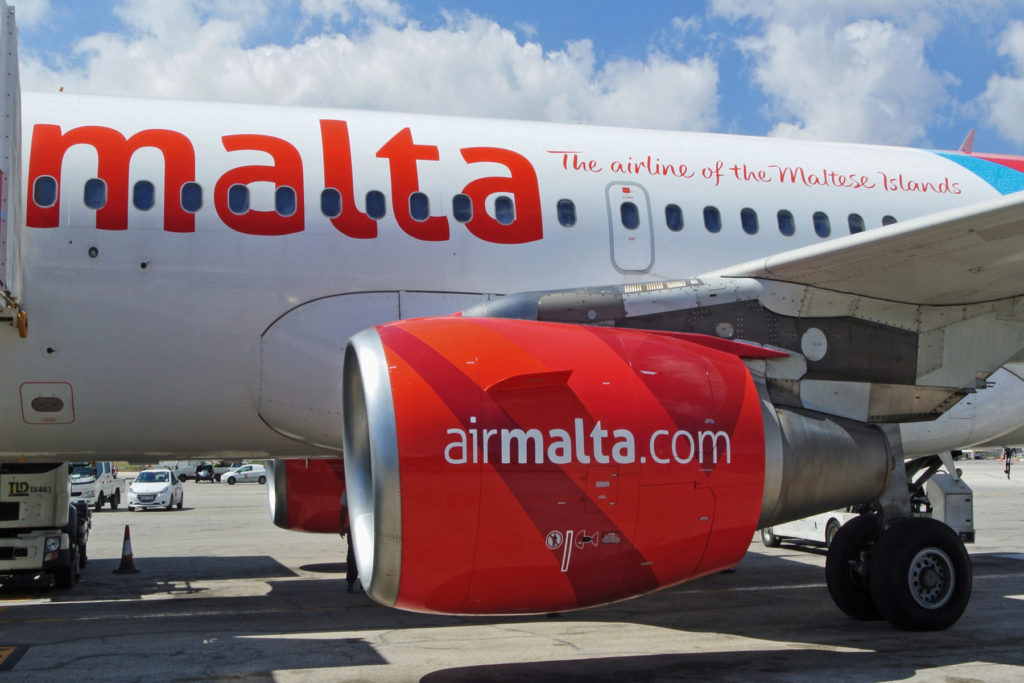
Here’s a new feature, the “Pilot Report,” in which I review and grade flights aboard different airlines. Welcome to the first installment: a trip with Air Malta.
Flight KM397, Amsterdam to Malta
Business Class, Airbus A319
Duration: 2.5 hours
Let’s start with a disclaimer: we hereby acknowledge that experiences aboard a given carrier can vary flight to flight, depending on the class of service, the temperament of the crew, and so on.
I wasn’t sure what to expect from Air Malta, particularly after lackluster flights on SAS and Air Portugal recently, but I came away impressed.
The online booking process was quick and hassle-free. I set out to book in economy, but decided to splurge when I was offered an upgrade to business class for only a couple of hundred dollars extra, round-trip. The carrier’s website is user-friendly and allows for advance seat selection even with last-minute reservations like mine.
The check-in staff at Amsterdam were contract employees, but friendly and helpful nonetheless. We departed right on time.
The Airbus A319 was packed almost full in economy, but was mostly empty up front. Air Malta doesn’t have a formal business class, per se. Instead, in the forward rows, the center seat of each three-seat block folds down, forming a table between the remaining two seats. It’s a kind of on-the-fly business class that allows them to adjust the number of rows based on demand. Other European carriers do the same thing.
Juice or champagne were offered prior to push-back, along with a selection of newspapers. There was a hot towel service shortly after takeoff, followed by a hot lunch. The meal was served economy class style, with everything together on a single tray rather than separate courses.
Neither the presentation nor the food itself was anything fancy, but it was perfectly satisfactory for a short-haul airline whose network doesn’t expand beyond Europe, with flight times seldom exceeding three hours.
The personal-sized champagne bottles were a nice touch. Cabin attendants were gracious and attentive.
After landing, I was walking through the arrivals hall when I realized that I’d left my passport in the seat pocket. Air Malta’s airport staff were patient and helpful, and I had the passport back within fifteen minutes.
Air Malta’s uniforms are stylish and professional, both for ground and inflight employees. In fact the carrier’s whole identity — its uniforms, its Maltese cross logo and its livery — is handsome and distinctive.
There was just a good feeling to the whole experience, start to finish. To satisfy fussy fliers, both the creature comforts and the human touch have to be done right, and Air Malta seems to understand this.
Here’s hoping they survive.
Malta is primarily a leisure destination, with a busy summer season and a much quieter winter. This is a tough environment for any airlines to operate in, with very thin margins on fares.
And the discount carriers are making things tough. On the return flight to Amsterdam, the Air Malta check-in line was mostly empty. Just across the lobby, the lines for Ryanair and EasyJet were teeming. For those headed further afield, Emirates now flies to Malta via Cyprus.
Air Malta was founded in 1974. In the old days its mainstay fleet was the Boeing 737 and 720. Today it operates only ten aircraft, all of them narrow-body Airbuses, serving about 35 destinations throughout Europe and the Mediterranean, some of them seasonally.
It’s maybe unfair to mention this, but Air Malta also played a role, albeit unwittingly, in one of the worst terrorist attacks in aviation history.
It was an Air Malta 737 onto which Libyan operatives smuggled the bomb destined to blow up Pan Am flight 103 over Lockerbie, Scotland, in 1988. The explosive device, hidden inside a radio and packed into a suitcase, traveled from Malta to Frankfurt, where it was transferred to flight 103, bound for London and onward to New York.
The two men who stood trial for the Lockerbie bombing, Abdelbaset al-Megrahi and Lamin Khalifah Fhimah, had been employees of Libyan Arab Airlines. Fhimah was the station manager in Malta. Much of the investigation into the bombing took place on the island. During my vacation there, it was a little eerie walking past the Libyan Airlines ticket office, just inside the gate to the old city of Valletta.
By the way, the term “pilot report,” which I’m adapting into a gimmick for my blog, is in fact a technical term quite familiar to aircrews. PIREPs, as they’re known in shorthand, are reports of meteorological phenomena encountered in flight. Conditions are passed along to company dispatchers or air traffic control, and made available to other aircraft. If a captain comes over the public address system to warn of impending rough air, often he’s acting on the advice of a fresh PIREP.
PIREPs make their way into the pre-departure paperwork as well, topping off a hefty and at times indecipherable sheaf of charts, bulletins and forecasts. Approximately three-quarters of a pilot’s training is devoted to unraveling the secrets of weather coding, which come in the form of byzantine transcriptions like this one:
KCMH UA / OV APE 230010/10TM 1516/FL085/TP
BE20/SK BKN065/WX FV0 SM HZ FU/TA 20/TB LGT
That’s a single, simple PIREP (something about smoke or haze near Columbus, Ohio). The archaeologists who figured out the Rosetta Stone practiced for years on aviation weather packets. Unless you’re a professional cryptographer, you’ll have to agree my own PIREPs are more enjoyable.
ALL PHOTOS BY THE AUTHOR

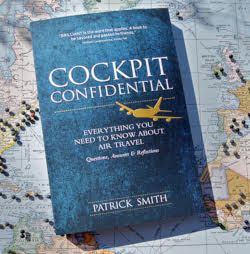


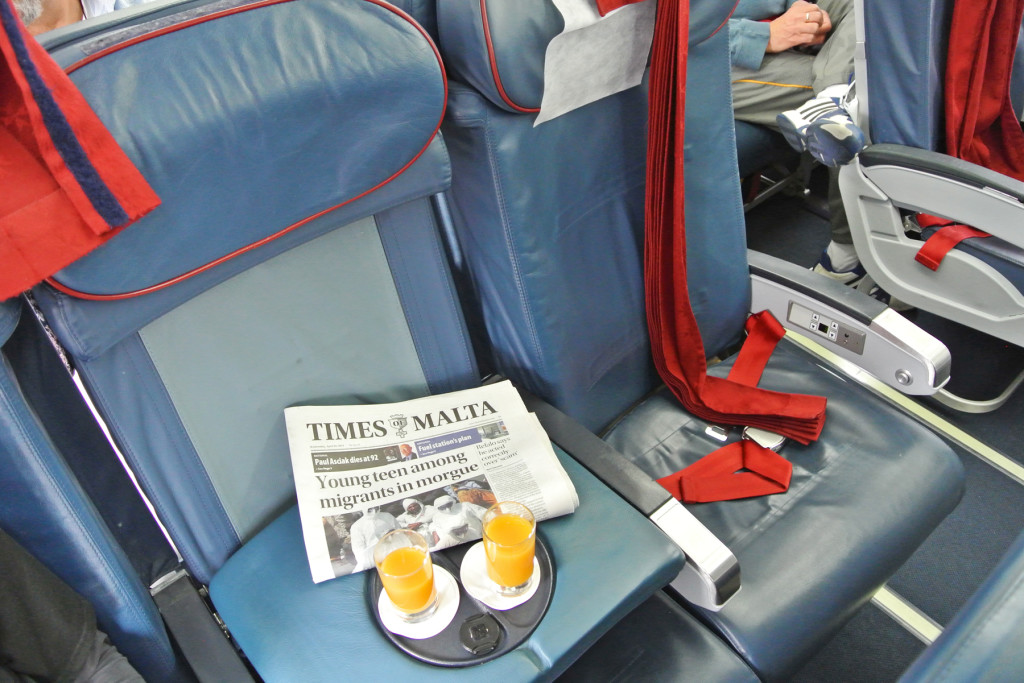
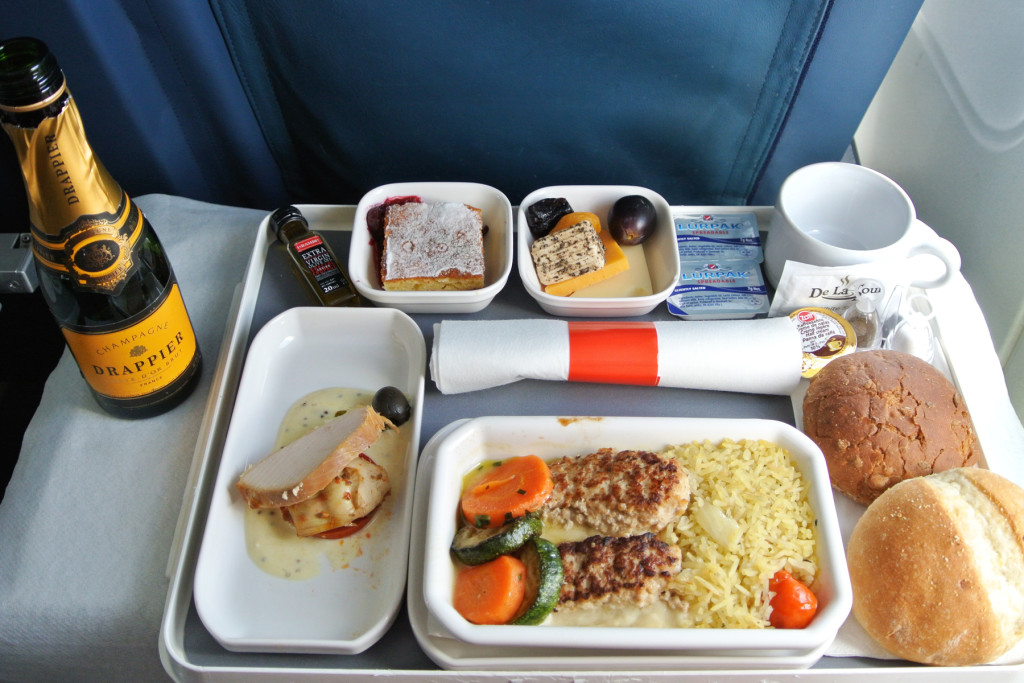
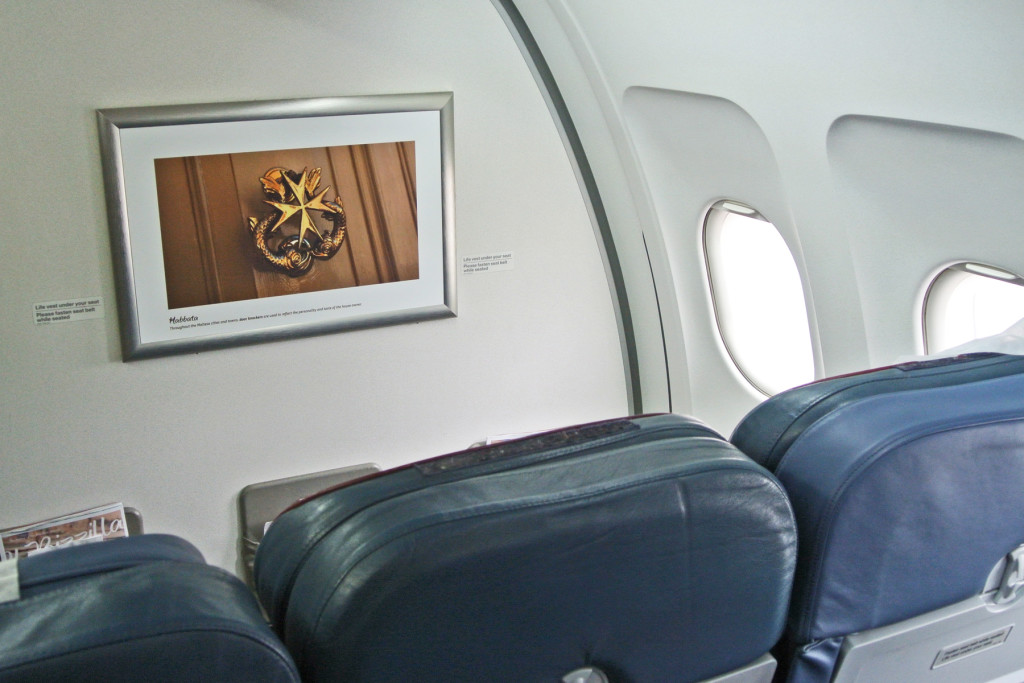
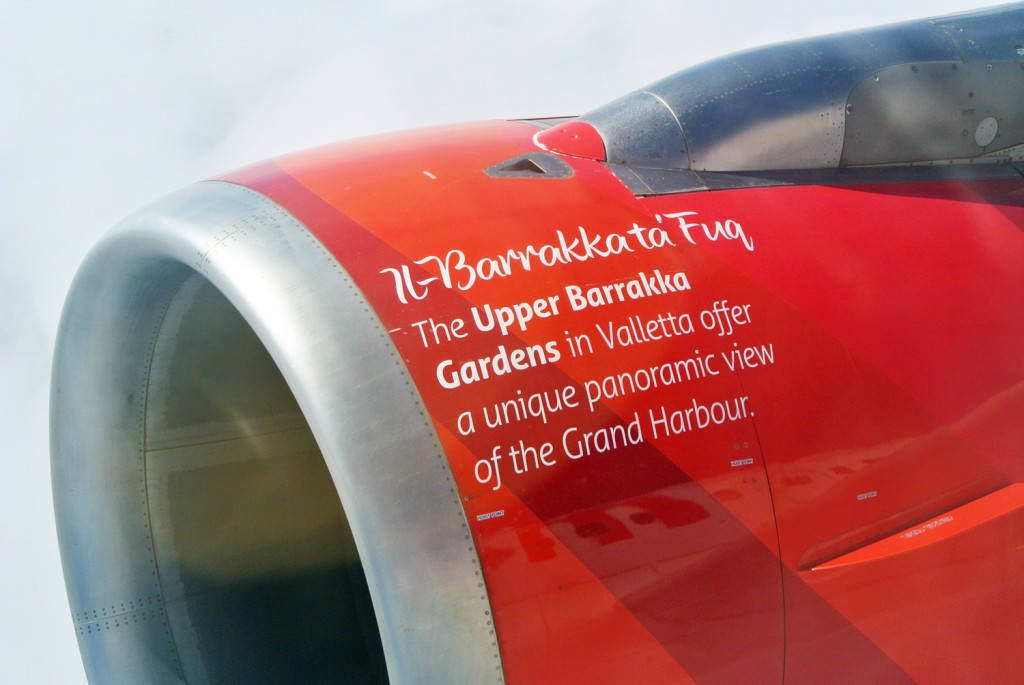
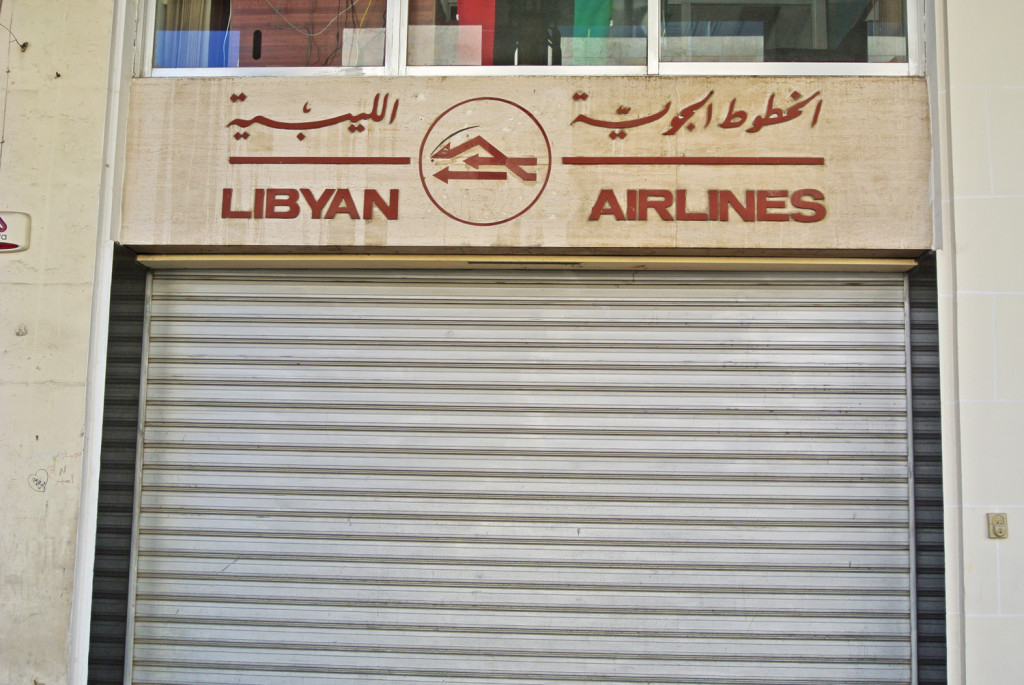

Leave a Comment
Maximum 1500 characters. Watch your spelling and grammar. Poorly written posts will be deleted!
41 Responses to “Pilot Report: Long Live Air Malta!”
You are viewing newest comments first. Click to reverse order
Thanks Patrick… always enjoy your valuable insight
I’ve had the opposite experience on Icelandair. In their case Economy Comfort seats are billed as being the same type seats as Air Malta with the center seat folded down. However often Icelandair adjusts the relative numbers of First Class/EC/Economy seats and sometimes that involves converting the rear two rows of first class into Economy Comfort by moving the bulkhead. Because I knew this I was able to get a first class seat for the EC price on 3 legs of my most recent Icelandair flight :-).
I just returned from a Newark-Hong Kong-Bangalore trip on Cathay Pacific. One of the most efficient and pleasant flight crews I have ever experienced in 30+ years of doing this trip.
I deliberately took the long way around, instead of stopping over in Europe as is usual. The ticket was among the cheapest. The long layovers in Hong Kong allowed for some fast & almost free sightseeing. I must say I was impressed with the city as well .. their public transport made me feel almost ashamed to be American.
Patric, have been reading you on and off for years and always enjoyed it. It’s unlike you to do this but — the airline is called TAP, short for Transportes Aéreos Portugueses. Not Air Portugal. Thanks for the great read again!
Throughout the 1990s and into the 2000s, the carrier called itself Air Portugal. Its formal name remained the full Transportes Aereos Portugueses, but it said “Air Portugal” right on the side of the plane, and the “T” was deemphasized from the logo. Only recently has the airline gone back to calling itself TAP. I refer to the company as Air Portugal mostly out of habit, but it also helps give the average person some idea of what the heck airline we’re talking about.
Hi Rod!,
I spent some 22 years in (Avanchets) GVA before moving to Bienne. Had an excellent view towards RWY 23 especially in winter when the trees were nude…
Malta has always been a destination that I’d like to make, but ho, one thing at a time. Next month will be visiting Warsaw.
Wishing you well, dear chap!
Irish MD-11
Haha I started decoding that PIREP and I found the document you copied it from!
http://www.faraim.org/aim/aim-4-03-14-472.html
KCMH UA / OV APE 230010/10TM 1516/FL085/TP
BE20/SK BKN065/WX FV0 SM HZ FU/TA 20/TB LGT
One zero miles southwest of Appleton VOR; time
1516 UTC; altitude eight thousand five hundred; aircraft
type BE200; bases of the broken cloud layer is six thousand
five hundred; flight visibility 0 miles with haze and smoke;
air temperature 20 degrees Celsius; light turbulence.
Someone is extremely bored to take that long to say:
It’s about quarter after three. I can’t see anything, it is 4 below zero and pretty windy. And most importantly I’m in Licking County, OH.
I meant 68F.
The “temperament” of the crew can really make or break a flight on any airline.
I recently flew AA PHL-RSW round-trip in first class via mileage upgrades. Same food, service, aircraft etc. However having a “just barely polite enough to not precipitate a complaint” flight attendant on the outbound leg and an outstanding FA on the return leg made all the difference in the world.
Nothing is worse than shelling out money or miles to upgrade to a better cabin and having the experience ruined by a surly stewardess. If you don’t like your job, then quit.
The personal-sized champagne bottles are a nice touch indeed. At first glance at the photo, I got a little overexcited when I saw the bottle’s orange label. Thought they were serving you Veuve Clicquot.
Jeez, if you don’t use the usual browser, you become “Anonymous”.
(humor attempt follows)
Thanks to commenter Rod for my favorite new word ‘phallocrat’. I wonder what the female version would be and ,no, I’m not going to guess here.
(end of attempt at humor)
By the way Patrick, I really appreciate the ability to sort the order of comments (newest first vs oldest first)
Warmest regards.
If I pay extra for an upgrade at booking, it is primarily for the more comfortable seat normally found in business class on American air carriers. Patrick doesn’t mention whether it was made clear to him when he bought the upgrade exactly what “business class” meant, but I would feel baited-and-switched if the physical seat turned out to be exactly the same as those in economy.
This is, I believe, typically how business class is done on short haul flights in Europe. So perhaps an American who had never flown within Europe would be surprised if they were expecting North American style business class, but most European travelers (who comprise most of Air Malta’s clientele) would understand what they were getting when buying the upgrade.
Since the business class on short haul US flights is called “first”, it’s implied that it’s somewhat better than business class on short haul european flights
I used to have to fly (no-one would for fun) Edinburgh-London City on BA a few times a week. On the tiny BAE146 they used into London City, business class amounted to allowing you to sit forward of a curtain hanging down from the oxygen-masks panel. Rather than behind it, you see, which must have made all the difference to your identical seat.
The fitting for this curtain was designed to slide forwards and backwards as required. On it was a hilarious (to me) warning to cabin staff: something like “Do Not Allow Class Divider to Impede Oxygen Supply”.
I took a photo of this obvious satirical comment on British society.
Patrick:
“If a captain comes over the public address system to warn of impending rough air, often he’s acting on the advice of a fresh PIREP.”
Women don’t fly airplanes? Granted, the vast majority of commercial pilots are men, but I’ve been on more than a few flights with women at the stick, including at least one carrier (Royal Air Maroc) in the Muslim world. Most recently was a few weeks ago, would have been KLM or Air France. I remember telling my little daughter about it when I got home, part of the never-ending parental struggle when raising girls in the Disneyverse to replace princess fantasies with strong female role models.
If you are going to be a stickler for whether someone gets it right between “Air” or “Airline”, or between “first officer” and “co-pilot”, then you should also be respectful enough of your female colleagues to acknowledge their existence.
The problem is, when trying to account for both sexes every time I refer to a pilot — using the “he or she” phrase, for instance — the prose becomes stilted and awkward. It sounds terrible. If I use only “she,” it’s self-conscious and distracting (“hmmm, he said ‘she,’ how interesting. Is he trying to make a point?”), so I default to the standard male pronouns. It’s just smoother.
There’s a segment on female pilots in chapter four of my book.
It’s interesting that you mention Royal Air Maroc. I hear female RAM pilots on the radio quite frequently. Turkish Airlines also has several women pilots.
A style standard is to use either a formal title or a general job description. For example, “If a captain comes over the public address system to warn of impending rough air, the flight crew is acting on the advice of a fresh PIREP.” It is obvious who you are talking about.
This isn’t an example of political correctness, merely an example of dropping a pronoun. While you are likely to grind your teeth over “flight crew”, most of us will not be bothered by it and understand :).
It is a hassle to use an outdated language to write with a modern sensibility, but finding a happy solution for the gendered pronoun becomes easier each time you try.
Maybe the easiest way to write your way around the problem, instead of thinking about it as a language issue, would be to imagine that part of the audience you are writing for is the 6,911 female commercial pilots in the US (according to my extensive research: https://www.wai.org/resources/waistats.cfm), over 6% of people in the US who are paid to fly. If the sentence fails for any of them, the sentence fails.
I taught writing for many years. The best way around this dilemma is to go plural — “when pilots come on the air they are acting on the advice of a PIREP.” This usage is neither obtrusive nor offensive.
Tunisair also has at least one woman pilot, probably more. And it did as far back as 30 years ago.
Switching within the space of one sentence from “a captain” to “the flight crew” would sound weird. Indeed, all tortured, artificial attempts to avoid putting a foot wrong sound pretty clunky.
“They” sometimes works: “When pilots come over the public address system to warn of impending rough air, often they’re acting on the advice of a fresh PIREP.” But this is no panacea.
Anyway, the Soviets and the Nazis tried to change their respective languages to suit their ideology. It didn’t work — no, not even the Nazis pulled it off.
So I think it’s something we’re all going to have to live with.
Anyway, any regular reader of Patrick’s stuff knows perfectly well that he’s no ‘phallocrat’.
Rod, you’re surely not suggesting that evolving the way we use language to reflect changing norms and realities is Nazi-esqe?
The world changes, and sometimes we need to make shifts in order to catch up. For years, people have argued that the “definition” of marriage is between one man and one woman. Then the law changed, and it wasn’t that hard for dictionaries to make a shift that reflects the times: https://www.ahdictionary.com/word/search.html?q=marry
I’d assume there are plenty of words you wouldn’t dream of using to describe people with certain pigmentation or ethnic backgrounds, that were common 70 years ago but would strike you as rude today. Using “he” to include “she” fits into that category for an awful lot of us. For women in careers that have long been dominated by men, such as aviation (or my wife in physics), it is disheartening to repeatedly be written out by one’s colleagues – especially when it costs so little for the XY colleagues to make a tiny effort at inclusive language that reflects the reality of women working in the field.
Martin: “You’re surely not suggesting that evolving the way we use language to reflect changing norms and realities is Nazi-esqe?”
(I was sorta half-expecting this …) No, Obviously Not. Was merely trotting out a spectacularly unsuccessful attempt to change everyday speech by people who were used to being obeyed.
I agree with everything you say. Only thing is: You Can’t MAKE It Happen. Language-users may propose, but only the Great Linguistic Magnet may dispose.
A language is practically an autonomous organism — certainly the most democratic thing around.
To take your example, (most) people have changed the way they speak about others with different skin colour because there was a real change of mentality and usage reflects that.
But the He and She pronouns are a farrr more fundamental part of our language than any skin-colour references. They are many centuries old.
Everybody has his (or indeed her) language peeves. But t’ain’t nuthin you can do ’bout it. So cast thy bread upon the waters. But then stand back and wait to see if anything happens. Very possibly nothing.
It isn’t a matter of inclusiveness, pronouns are used to refer to a specific person.
For example, “When Sarah picked up the pen, she began to write.” Otherwise, “The author picked up the pen and began to write.”
To me, what is more grating is to bring this up when someone is trying to explain a completely different topic. I can almost imagine a woman pilot saying the same thing to you – stop making this into a cause in here.
Whoa, and I thought I was a knowledgeable layman until I got to the weather report!!
One joy of the old days of expensive highly regulated air travel was flying next to an empty middle seat. Common then, rare today.
A great read! (As always),
I’d love to read a Pat’s PIREP on either Aeromexico or United, I fly with them constantly (with bittersweet reports!)
Keep up the good work, I love checking in every so often… Always a pleasure to see something new has been uploaded.
E
“Malta is a huge leisure destination for Europeans, meaning that margins are very thin on most fares.”
I live in Geneva. Unless things have changed very recently, Air Malta flies here once a week and none of the low-cost carriers do that route. So Air Malta is the only direct flight.
It seems to me that filling the nooks and crannies like that is their only hope against the likes of blasted Ryanair and its nut-cutting CEO Michael O’Leary.
Could you comment on noise level in planes? Which are the best/worst models?
I don’t fly so very much, but I’ll go out of my way to get an A320 rather than B737 because of the difference in noise. A380 is also very good, but I no longer live in the right place to catch one.
This is covered in my book, I think. Basically, where you sit is more of a factor than which type of plane you’re on. Generally, the front is quieter than the back. If the plane has wing-mounted engines (most do), seats aft of the wing tend to be noisy, especially during takeoff and landing. A 737 might be a bit louder than an A320 overall, but on either model, if you’re behind the wing, you’re going to have that roar from the engines.
The A380 gets rave reviews for being quieter than most planes, and the 787 does too.
Just want to mention for the record: Some of us like the engine noise. Not only does it remind me that I’m riding in a really awesome machine, it provides a nice masking effect against crying babies and the like.
Nothing quieter than being seated nearer the front of an MD-80 or derivative…at takeoff, all you hear is a muted “whoosh” and not much after that. Just a quiet peaceful ride. First generation 737’s were the absolute worst no matter where you sat.
Can’t wait to see if you ever get onto any of the Australian carriers.
Cool read, as always!
Since Im Norwegian, Im just curious why you were not happy with SAS? Where did you fly? Dont get me wrong, I fly with them all the time (when Im back home, that is) and learned to expect nothing more than the minimum. I dont go long haul with them though, so I can manage a 2 hour flight (or less) with nothing extra.
Im not sure, but a 2-3 hour flight in Europe may be considered relatively long, compared to the US. Its not that big over there and you can fly between the major cities within a couple of hours. Maybe they have adapted to that and think of a 2-3 hour flight as something where you have to offer a bit more than just a coffee.
Can’t speak for Patrick, but in my minimal experience with SAS (AMS/Oslo/Tromso return), I was unpleasantly surprised to find them much more like a discount carrier than I’d expected.
Only hot coffee & tea on offer on any of the legs–no cold or non-caffeinated beverage available, not even water. No food, but that’s now the norm, so no points off for that. First flight late, unannounced gate change, gate staff brusque almost to the point of rudeness. And all boardings were free-for-all chaos, no boarding by rows, zones or any other orderly method.
It was all bafflingly unlike any of my other experiences in Norway or Sweden.
I’m more curious how you forgot your passport in the seat back. That’s a rookie move! Or something I would do.
For your few dollars extra you missed the misery of Air Malta’s economy class. There is no longer a proper meal service just a small roll & water. The movies & free ear phones are long gone. The one good thing about business class is you get a decent seat pitch.
Barring the inedible food, I found Air Malta’s economy class just fine. Great view of Etna. I mean, what more does one want?